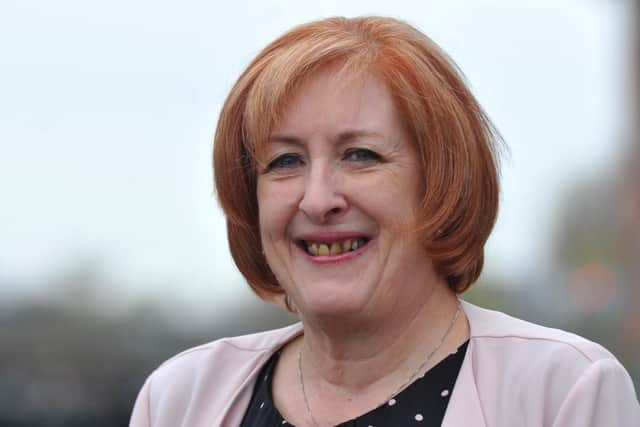Yvonne Fovargue MP: No magic wand when it comes to debt
and live on Freeview channel 276
This is where a household’s total income is not enough to pay for all their outgoings. In other words, there is not enough money for the essentials, such as food, rent and electricity, let alone for making any repayments on borrowing or debts.
There have always been people in this situation, of course, but the numbers have increased hugely in recent years. Advice agencies, such as Citizens Advice and StepChange, say this now describes the majority of their clients, and it ties their hands.
Advertisement
Hide AdAdvertisement
Hide AdAfter all, advice about consolidating loans and minimising monthly repayments is of limited value when there is nothing left in the pot.


It doesn’t take a genius to work out that the culprit here is the cost-of- living crisis. People are faced with unprecedented gas and electricity hikes, with supermarket food prices rising day by day and real wages falling behind.
Yes, inflation has probably peaked and some costs have eased a little, but millions remain a lot worse off than they were.
To my mind, this calls for a rethink about how we support those in most need.
Advertisement
Hide AdAdvertisement
Hide AdThe Covid crisis saw temporary, short-term solutions: payment holidays on overdrafts, interest deferrals on mortgages, furlough schemes and the £20 uprating of Universal Credit.
What we need now are permanent solutions. I say solutions rather than solution because there is no single answer, no magic wand when it comes to poverty and debt.
There are practical measures that can help, such as reducing the energy price cap further and halting the forced installation of pre-payment meters in homes, where customers pay the highest rates for energy.
We should also end the five week wait for the first Universal Credit payment and allow people to go back to receiving assistance if their job falls through.
Advertisement
Hide AdAdvertisement
Hide AdI would also like to see the £20 uplift restored and benefits levels raised.
Debt advice agencies need better funding, but we also need to overhaul the debt solutions they can offer.
I welcomed both ‘breathing space’, which gives those in debt a vital break from their creditors and expanded Debt Relief Orders, which allows for certain debts to be written off.
But these piecemeal changes aren’t enough. We need root-and-branches reform, with solutions geared to the best interests of the client, and which avoid the use of bailiffs by default. We also need to end the ‘poverty premium’, where poorer people pay more for their goods and services than the better off, such as for insurance or electricity.
Advertisement
Hide AdAdvertisement
Hide AdAnd we need loans that are geared to people on lower and more uncertain incomes. Payday and rent-to-own products often created more problems than they solved and I have my doubts about Buy Now Pay Later firms, which need to be regulated. Surely it is not beyond the competence of financiers to create a loan for the less well-off which is not a rip-off?
There’s much we can do help, but we must act now. We used to talk about ‘bumps in the road’, where an unexpected life event might temporarily derail a person’s finances. But many have now run out of road, as the rise of negative budgets shows.